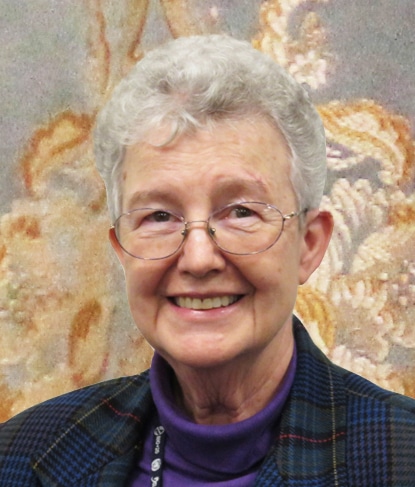By Sister Michele Morek
In March, the Vatican formally repudiated the Doctrine of Discovery, which the Western world used for centuries to justify colonization, and – though it was not a part of formal church doctrine – claimed to give European nations a right to take over new world lands. Combined with systemic beliefs of white supremacy, it contributed to the shameful treatment of native populations all over the globe.
In New Mexico, I grew up with children of many native tribes, and when we played “Cowboys and Indians” I always wanted to be on the Indian side because I liked shooting my bow and arrow (fake, with a suction cup on the end!)
But the first time I realized how unjustly they were treated was in fifth grade, at a movie in downtown Gallup. Titled Navajo, the movie told the story of a Navajo child taken from his family and forced to attend a government-sponsored boarding school. There, the children were sometimes physically abused, starved, and forbidden to speak their language, and often could not return home for years.
I left the theater horrified, and in tears. My mother, a social worker on the Navajo reservation for many years, confirmed this and made it a point to enlighten me even more as the years went on.
Now we know that those schools (many run by religious organizations/communities) were set up to – in the words of Richard H. Pratt, a founder of one of the schools – “Kill the Indian. Save the man.” Today, I live next door to the Shawnee Indian Mission in Kansas, an institution set up by well-meaning people but with echoes of the philosophy of those other schools. I am haunted by their voices.
Our Ursuline community went to New Mexico at the request of some Kentucky settlers there; we staffed several schools or worked pastorally in Indian pueblos. Our work there is described in Candles of the Lord (out of print) and in the new book by Associate Dan Heckel, Hope and Firm Faith: The Story of the Ursuline Sisters of Mount Saint Joseph.
My Ursuline high school at Waterflow was on the edge of the Navajo reservation, and my classmates were children of several tribes, as well as Hispanic and Anglo. There I experienced how our Ursuline educators exemplified Angela Merici’s own words: “Reflect that in reality you have a greater need to serve them than they have of your service.”
I think the greatest compliment I ever heard on the Ursuline educational enterprise was at an anniversary celebration at Waterflow, when a Navajo girl – my classmate – told me that we should be proud knowing that “All the Navajo boys who went to Waterflow turned out all right!” High praise indeed.
In the 1600s, Ursuline Saint Marie of the Incarnation opened a school in Quebec for Native American girls – the first educational institution for women in North America – learning several indigenous languages for her work there. She emphasized that the First Nation students should be treated the same way as the French students at her school; the girls sang hymns in both French and their native languages, and many of the nuns formed maternal bonds with the students. That sounds right.
Trying to imagine what Angela would think of Marie’s school, I searched the vision statements of some Ursuline schools: I see that they continue to operate with what I think would be Angela’s philosophy: “nurturing soul, intellect, heart, and imagination,” and “educating the total person in a caring and supportive environment.” That sounds right.

Comments
Sister Michele,
I agree 100%, we should treat everyone, no matter what there race, culture, language, etc.,with love,dignity, and respect.
Love, Peace and blessings,
Pam Knudson, OSUA